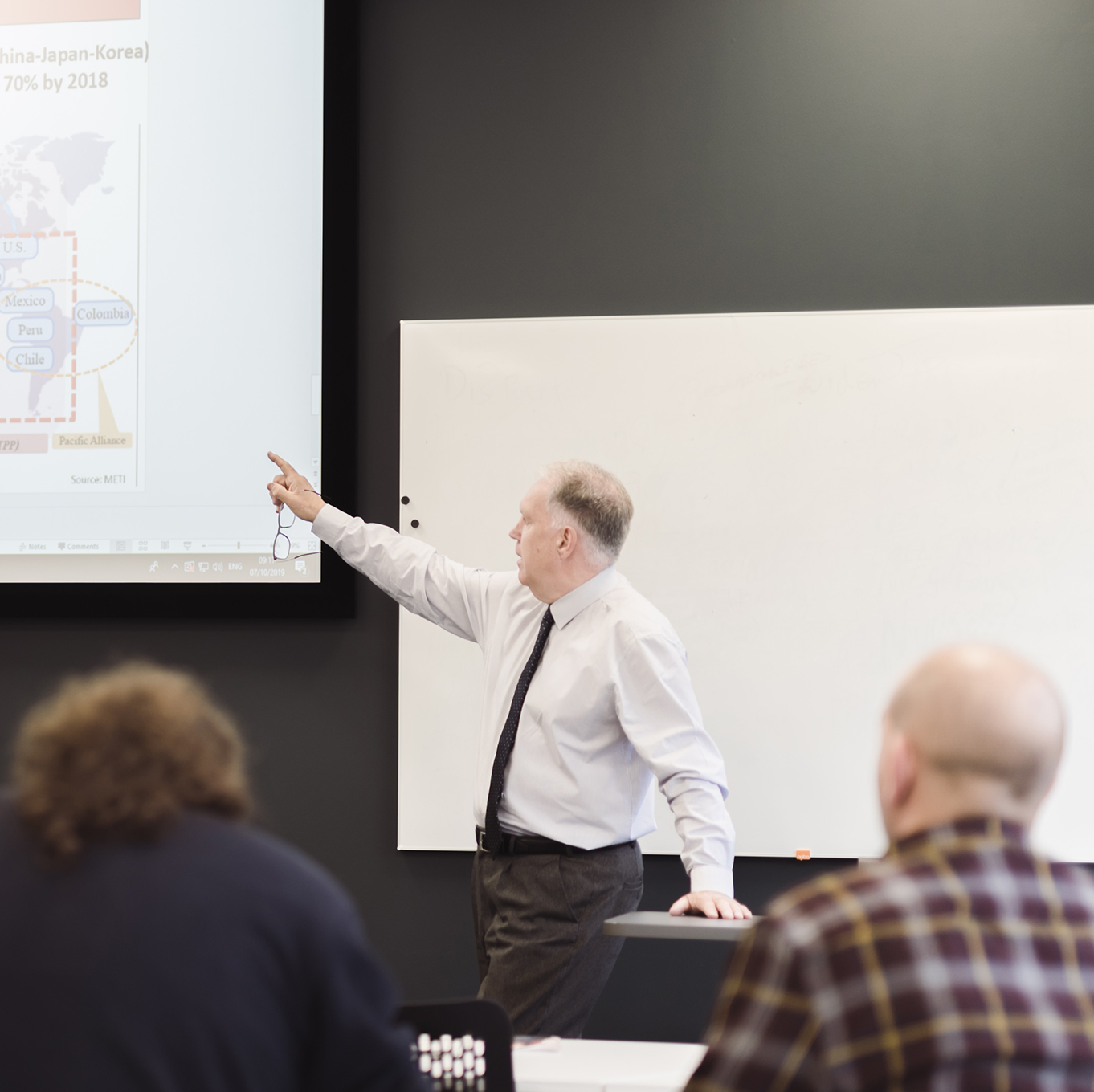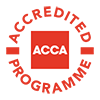BA (Hons) Accounting & Finance Management (with Foundation Year)

Course details
UCAS Code
A268
Year of entry
2025, 2026
Duration
4 YRS (FT)
UCAS Tariff
48-72
Institution Code
G53
Location
Wrexham
Course Highlights
Accredited
by ACCA with eight exemptions.
Joint 2nd
out of Wales, Scotland, and Northern Ireland for Overall Satisfaction*
Achieve
a level 5 CMI Diploma in leadership & management upon graduation.†
Why choose this course?
Our Accounting and Finance Management degree concentrates on the practical applications of accounting and finance theories, boosting your employability by developing you as a business-ready graduate.
You will:
- Be eligible for exemption for some ACCA and AIA examination papers upon course completion
- Achieve a level 5 Diploma in Leadership & Management from the Chartered Management Institute worth over £1,300 at no extra cost (Wrexham-based students only)
- Benefit from our partnership with Sage, providing you with real world Accounting software to prepare you for the workplace
- Be able to access a range of benefits including consultative services and the BGA eLearning hub due to the University being a Bronze Member of the Business Graduates Association
- Have opportunities to engage in fields visits to places such as the London Stock Exchange
- Learn from lecturers that are professionally qualified in Accounting or Finance
*This course is part of a Subject Area that is ranked Joint 2nd out of Wales, Scotland, and Northern Ireland for Overall Satisfaction. (National Student Survey, 2024)
†Wrexham based students
3 year degree without foundation year, UCAS code: 4J68 - or an industrial placement year, UCAS code: AFIP



Key course features
- Work-based learning - from case studies and problem-solving to work placement opportunities, you will graduate equipped with the knowledge and skills to meet current and future market needs.
- You will take part in the Business Schools new simulation suite where you can test and build you Accounting and Finance knowledge on simulated companies to apply the theories you learn in the classroom, into practice.
- Work placement opportunities are available to all of our students who demonstrate a good standard of engagement and professionalism during their studies.
- You will be able to participate in the new North Wales Business School Simulation Suite
- Your studies will follow a theoretical and practical approach to Accounting and Finance that ensures you build the core knowledge you need in the industry after graduation
- You will learn a variety of Excel models, SPSS and other coding software to ensure you have the skills you need when they enter the workplace.
What you will study
YEAR 1 (FOUNDATION YEAR)
The Foundation Year is an integrated year where you will study core modules with a broad range of students from across the Faculty of Social and Life Sciences, giving you access to different perspectives and networking opportunities.
The modules will equip you with key skills needed for Higher Education and beyond. They will give you the chance to explore your subject area and available careers, allowing you to adapt your reading and assessments to be relevant to your degree pathway.
Alongside teaching from the broader faculty staff, you will be able to meet with staff and other students from your main degree pathway and get involved with events and opportunities that they are running.
- Study Skills for Success (Core): This module will provide a solid foundation in academic conventions and time management skills to help you to progress through your degree.
- Resilience in Higher Education and Beyond (Core): Personal development and resilience are as important as academic skills in the accomplishment on your journey towards graduation, and this exciting module will equip you with the attributes needed for this.
- A Day in the Life (Core): This module allows you to explore the potential career options open to you on completion of your chosen degree. You will be exploring the professions linked to your degree and start preparing your graduate portfolio for employers.
- Life and Work in the Welsh Context (Core): This module will give you the opportunity to explore your subject area and/or desired career in relation to living and working in today’s Wales.
- Welsh for First Time Learners (Optional): This module provides an introduction to the Welsh language for those taking their first steps.
- Numeracy (option): If your degree requires a competent level of numeracy, you may be advised to choose this option.
- Professional Communication in the Workplace (Optional): In this module, you will begin to develop the skills and aptitude necessary to communicate effectively in a professional context.
- Maths and Experimental Design (Optional): If your degree pathway requires an understanding of numeracy and sciences, then this module is designed to provide the opportunity to achieve that.
YEAR 2 (LEVEL 4)
In year two, you will be introduced to foundational topics across key business disciplines, including management, finance, human resources, marketing, communication, and analytics. This year focuses on building essential knowledge and skills that provide a strong basis for further specialised studies.
MODULES
- Introduction to Management & Business: This module will introduce you to some of the fundamentals of business, including organisational structure and the nature of the modern business practices. It will also provide opportunities for you to acquire a broad understanding of management by exploring the skills and characteristics of effective managers and leaders, and techniques to successfully manage a team.
- Introduction to Business Finance & Accounting: This module aims to introduce the contemporary concepts and principles of accounting and finance by applying relevant management accounting, financial accounting and financial management techniques, to determine the most appropriate operational financial decisions, and analyse the effects of those decisions on a firm’s performance and financial position.
- Understanding Human Resource Management: This module provides a comprehensive understanding of the role of human resource management (HRM) in organisations. The module covers the following HRM fundamentals:
- Types of organisation prevalent in the business world
- The importance of human resource management and the role of HR practitioners
- HR activities in organisations
- Impact of technology on human resource management - Marketing Essentials: This module is about recognising the importance of marketing’s role in driving success and delivering results. You will learn about the different functions of marketing in the 21st century and will study how an appreciation of consumer behaviour and the marketing environment can enable effective targeting and planning. By the end of this module, you will have gained an awareness of the various tools available to the modern day marketer, and be capable of recognising their strengths and weaknesses, enabling you to use them both creatively and effectively in an operational context including commercial and non-profit sector organisation.
- Business Communication Skills: The module aim is to recognise the importance of effective integrated internal and external communications in building sustainable relationships and delivering customer value. You will also learn how to communicate effectively in a business and academic settings understanding the fundamentals of presentation skills, written communication and professional communication.
- Business Analytics: This module aims to develop a critical and practical understanding of the concepts and principles of analytics and the ability to apply these concepts to the systematic analysis of data within the contemporary business world.
YEAR 3 (LEVEL 5)
Year three will deepen your understanding of core accountancy and business concepts such as management accounting, taxation, and corporate risk management. It also introduces you to legal and financial principles, sustainability in finance, and valuation techniques. Additionally, there is an option to take an industry placement, offering practical experience and enhancing employability.
MODULES
- Advanced Management Accounting: This module aims to develop knowledge and skills in the application of management accounting techniques for planning, decision making, performance evaluation, and control. You will apply and critically compare the cost classification, accumulation, and allocation approaches and techniques.
- Business Taxation: This module aims to develop a critical and practical understanding of the concepts and principles of business taxation. In particular, you will have the opportunity to learn and practice current tax policies in the U.K. and in the international setting.
- Managing Corporate Risk and Crime: This module aims to develop a critical understanding of the concepts and principles of the management of corporate risk and crime and the ability to apply these concepts to the business world. Risk is an inherent part of business, and as part of this module you will explore the risk management process including the identification of organisational risk, analysis of the likely effect of those risks, design and selection of control measures and the monitoring and evaluation of these measures. You will investigate risk as it relates to finances, health and safety, corporate manslaughter, workplace theft, among others. You will also consider recent/topical business scandals, and of latest and forthcoming developments in corporate governance and responsibility.
- Business Law: This module aims to develop a critical understanding of the concepts and principles of the law as it applies to business and the ability to apply them to practical business situations. You will learn the main principles of the law of contract and tort and statutory consumer protection and assess and apply these to realistic commercial situations. The main concepts and principles of company law and the law affecting other forms of business organisations will be explained and applied to realistic business situations and critically evaluated in terms of its relevance to commercial practices.
- Sustainable Finance: Theory & Practice: This module aims to develop a critical and practical understanding of the concepts and principles of sustainable investment. In particular, you will have the opportunity to learn and practice sustainable investing applied to real world scenarios. Embedded in the module content and assessment are the competencies required to ensure you have the skills needed to work to current sustainable investment and support professional development.
- Security Analysis & Valuation: This module aims to develop a critical and practical understanding of the concepts of financial securities and their valuation methods. In particular, you will be brought to the forefront of current methods of valuation techniques and their application to current market scenarios.
YEAR 4 (LEVEL 6)
The final year emphasises advanced learning, covering areas like financial management, auditing, strategy, and reporting. A dissertation is a key feature, allowing you to integrate your knowledge through research, further preparing you for professional and real-world challenges.
MODULES
- Advanced Financial Management: This module aims to introduce the contemporary financial management concepts and principles so as to enhance your ability to determine the most appropriate operational financial decisions, and analyse the effects of those decisions on a firm’s performance and financial position. The module also aims to help you to understand the appropriateness, the advantages / shortcomings of various financial management techniques and tools and use them accordingly to maximise value.
- Audit and Assurance: This module aims to develop knowledge and understandings of the audit process and its application in the context of the professional regulatory framework. In particular, you will learn to assess the nature, purpose and scope of assurance engagements, including external and internal audits within the regulatory and ethical framework. Audit risk, control risk and their potential consequences will be identified and evaluated as will internal controls and information systems to determine an appropriate audit approach. You will also learn to determine an appropriate Audit plan for an entity ensuring that it meets the objectives of audit engagements and the application of International Audit Standards.
- Strategic Management: This module presents a systematic approach to the study of strategic management, building upon an array of ideas and theories ranging from industrial organisation theory to institutional economics. This unit outlines the fundamentals of strategic management and gives you an introduction in this important area of business management. You will gain an awareness of the issues involved and the techniques that managers adopt. The tools and techniques will help you understand how organisations achieve sustainable competitive advantage.
- Financial Reporting & Analysis: This module aims to develop a critical and practical understanding of the concepts of financial reporting and analysing financial statements. In particular, you will be brought to understand and master current financial accounting practices employed throughout the industry. Embedded in the module content and assessment are the competencies required to ensure you have the skills needed to work to current sustainable investment and support professional development.
- Dissertation: The aim of the dissertation module is for you to demonstrate the application of knowledge and skills gained during the undergraduate programme of study in all programme routes in an independent, self-motivated, enquiring and problem-solving manner. This serves to extend, underpin and enhance learning through the identification of a business/management problem in either business, accounting & finance, HTEM, HRM, Marketing and any other business related area which requires theoretical research, structured data collection, subsequent analysis leading to conclusions and recommendations.
The information listed in this section is an overview of the academic content of the programme that will take the form of either core or option modules. Modules are designated as core or option in accordance with professional body requirements and internal academic framework review, so may be subject to change.
Entry requirements & applying
UCAS code: A268
Our general entry requirement for the foundation year is 48-72 UCAS tariff points but all applications are considered individually and we consider work experience, vocational training/qualifications as well as motivation and potential to succeed.
Teaching & Assessment
Students are assessed in a variety of ways over the course of their undergraduate studies. The balance between the different forms of assessment is determined by the different aims and learning outcomes of the core and option modules. Assessment methods include academic essays, presentations, reports, simulation exercises and examinations.
TEACHING AND LEARNING
Wrexham University is committed to supporting our students to maximise their academic potential.
We offer workshops and support sessions in areas such as academic writing, effective note-making and preparing for assignments. Students can book appointments with academic skills tutors dedicated to helping deal with the practicalities of university work. Our student support section has more information on the help available.
In terms of particular needs, the University’s Inclusion Services can provide appropriate guidance and support should any students require reasonable adjustments to be made because of a recognised prevailing disability, medical condition, or specific learning difference.
Career prospects
Students who study BA (Hons) Accounting and Finance Management will go on to work in fields such as, but not limited to:
- Accounting
- Auditing
- Banking
- Wealth Management
- Financial Analyst
Graduates have gone to work at; PWC, Deloitte, Bank of America, Lloyds, and a variety of other Accounting and Finance firms.
Students who complete this degree can go on to study a Master of Business Administration (MBA) or MSc International Business and Finance Management. Students can also go on to study one of our online postgraduate degrees at the North Wales Management School.
Our Careers & Employability service is there to help you make decisions and plan the next steps towards a bright future. From finding work or further study to working out your interests, skills and aspirations, they can provide you with the expert information, advice and guidance you need.
Fees & funding
You do not have to pay your tuition fees upfront.
The fees you pay and the support available will depend on a number of different factors. Full information can be found on our fees & finance pages. You will also find information about what your fees include in the fee FAQs.
All fees are subject to any changes in government policy, view our undergraduate fees.
For international students looking to study this course please see our international fees.
Programme specification
You can see the full programme specification here.Accommodation
At Wrexham University, we offer on-campus en-suite rooms within our Wrexham Student Village. These private, fully furnished spaces are conveniently located, providing easy access to campus facilities, study areas, and social spaces. Plus, you’re just a 10-minute walk from the city centre!
With all bills included, free Wi-Fi, 24/7 security, and large social areas, you’ll find everything you need for a great student experience.
Explore our student accommodation options to find your perfect home away from home.
International
This course is open to international students, for information about the university’s entry requirements for EU/international students, please visit our international section.
